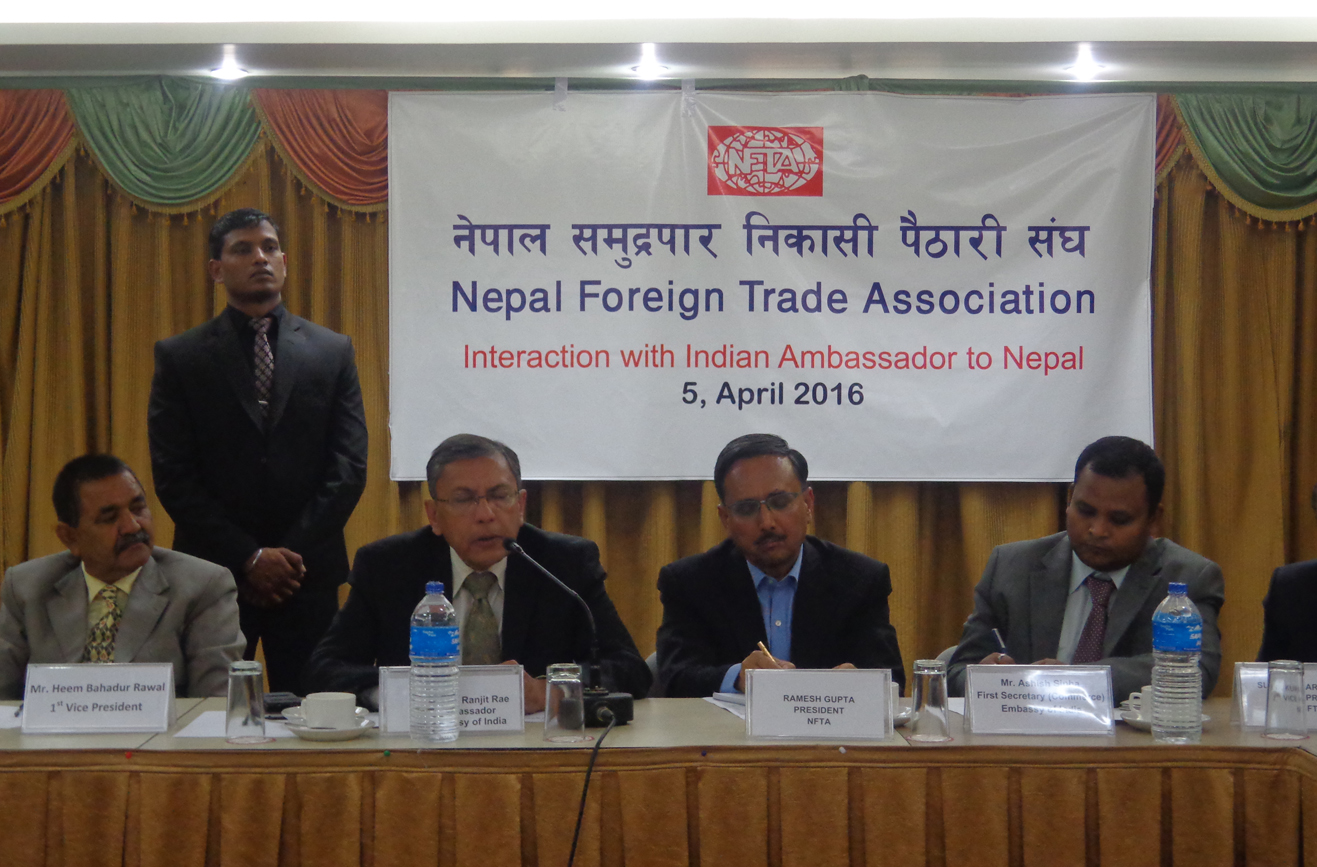Nepali traders seek suspension of countervailing duty in India
KATHMANDU: Nepal Foreign Trade Association (NFTA) has requested for removal of countervailing duty imposed by the government of India on the import of Nepali goods. Even as Nepali exporters have long been lobbying for the same through the government, the government of India has not suspended the provision yet.
The government of India imposed the duty to safeguard concerned industries in India because the level of tariff imposed on import, which is also known as countervailing duty, will minimise the chances of imported goods being sold at cheaper rates as compared to the locally produced goods.
Normally, countervailing duty is levied on products that receive subsidy during manufacturing in the country of origin. The government of India has imposed such duty on readymade garment products to offset excise duty levied on their own products. As per traders, India has imposed additional countervailing duty on Nepali garments.
During an interaction with Indian Ambassador to Nepal Ranjit Rae today, NFTA officials said that as Nepal’s export volume to India, especially of garments, is quite low, it could not affect the production base in India.
“The safeguard measure taken by the Indian government has been hurting Nepal’s export to India,” said Ramesh Gupta, president of NFTA, adding, “We request the Indian government through the ambassador of India to Nepal to suspend such duties to promote India-Nepal trade.”
Recently, the government of India has also informed that is preparing to impose anti-dumping tariff on jute products and asked the exporters to present reasons as to why the Indian government should not impose this law on jute products within three months.
Since commerce secretary-level talks between Nepal and India are going to be held in the last week of May, traders have been lobbying with the government to raise the issue during the discussions.
In the interaction programme with the Indian envoy today, traders also sought facility for movement of bulk cargoes to the railheads of Jogbani (Biratnagar) and Nautanwa (Bhairahawa). Currently, bulk cargoes ferried via rail only arrives to Inland Clearance Depot (ICD) at Birgunj — the only rail-linked ICD of the country.
As per traders, if the Indian government allows movement of bulk cargoes to the railheads of Nepal border, it will help in reducing industrial production costs and shorten the delivery of goods because there is rapid industrialisation in Bhairahawa, western part of Nepal. The country imports MS-billet, fertiliser and coal, among other items as bulk cargo.
NFTA has also sought the facility to import petroleum products via rail and has asked for Indian government’s support in establishing internationally accredited labs in the country.
Similarly, NFTA has also requested that India accept the lab certificates issued by Nepali labs to export goods to India as Nepali traders have been facing lots of problems related with quarantine while exporting
agricultural and food items to the southern neighbour.
Addressing the programme, Indian Envoy Rae expressed his commitment to forward the grievances of Nepali traders to higher authority and concerned ministries of India. The Indian ambassador further said that the quarantine and other problems will be solved to large extent after the establishment of integrated check posts (ICPs) and said that Indian government has been extending its support to Nepal for trade facilitation.






